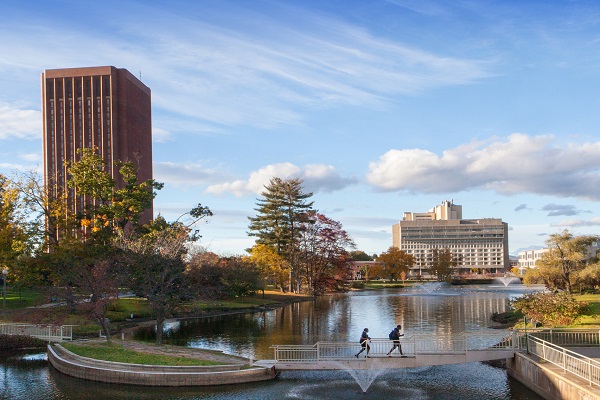UMass Amherst Human Security Lab to Study Military Attitudes Towards Nuclear Weapons with New Grant
The UMass Amherst Human Security Lab has been awarded an $80,000 research grant by the Lex International Fund, hosted by the Swiss Philanthropy Foundation, to launch a scientific study of how active-duty U.S. military personnel and veterans view the military utility and lawfulness of the U.S. nuclear arsenal.
“Most public opinion work on nuclear weapons focuses just on the general public, but we don’t know much how their views are similar to or different from those of the military personnel who would actually be tasked with carrying out a nuclear strike,” says Charli Carpenter, professor of political science and lab director, who will lead the project.
The project will be funded through a partnership between the Swiss Philanthropy Foundation and Lex International, a Swiss-based nongovernmental organization that works with civil society movements, international organizations, governments, media, industry and the scientific community to “drive meaningful change through research, coordination, and the development of powerful policy and communication strategies.”
The project grew out of conversations in November of 2023 between Carpenter and Lex International executives at the United Nations Second Meeting of State Parties to the Treaty on the Prohibition of Nuclear Weapons (TPNW), where Carpenter and several students presented new research on public attitudes toward nuclear weapons and how those attitudes were impacted by learning about the nuclear ban treaty. That earlier project was funded in part by the International Campaign to Abolish Nuclear Weapon’s Critical Research Fund.
Carpenter is excited not only about the chance to continue important research on military attitudes toward nuclear weapons, but also about the evolving relationship between the Human Security Lab and a diverse array of stakeholders in the human security space. Both graduate and undergraduate student researchers from the Department of Political Science, Legal Studies Program and Department of Psychology and Brain Sciences, where former Associate Director Berni Leidner helped co-found the lab, will be involved in the project.
Several student researchers associated with last year’s undergraduate research program assisted in background research on the project and some may continue in the fall. The team also envisions a collaboration with Amherst College professor and nuclear security expert Eleonora Mattiacci, and will conduct the surveys of military and civilian responses in collaboration with survey research firm YouGov.
Carpenter expects to have findings to present in time for the next Meeting of State Parties for the TPNW in 2025. “It’s exciting to see stakeholders in this space taking the findings of rigorous social science seriously, in efforts to build a world where nuclear weapons will never be used,” she said.

